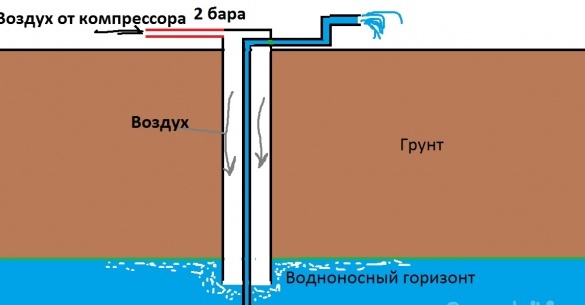Suppose there is a well with a depth of 15 or 20 meters, do not raise water from it with an external pump. Why? Because the maximum water column that can provide atmospheric pressure is 10 meters, but in fact the pump pulls only with 8 or nine meters.
Then I got the idea that if the pressure in the aquifer is raised? If you lift it by just one atmosphere, we get a column height of another +10 meters, that is, real 18 meters.
But how to raise this pressure? The idea is as follows. Place the hose in the casing and lower it into the water layer slightly below the casing. And then we pump the compressor air into the casing. Well, this is one option, it is not final.
I thought of using a compressor from the refrigerator as a compressor, I have one.
But here the question arises: will air displace water from the aquifer?))) What is the probability of this event? I think a little. The air, too, seems to have nowhere to go, it is quite possible that under the ground it will turn out to get a stable elevated pressure and displace the water above, from where it can be "sucked" by an external pump.
The essence of the whole idea is to dig a small-diameter well, insert a plastic hose into it and calmly pump water from a depth of more than 10 meters. You can not use an external pump, but only work with a compressor, but the pressure will need a lot. Who has any opinions? The scheme is not final.

